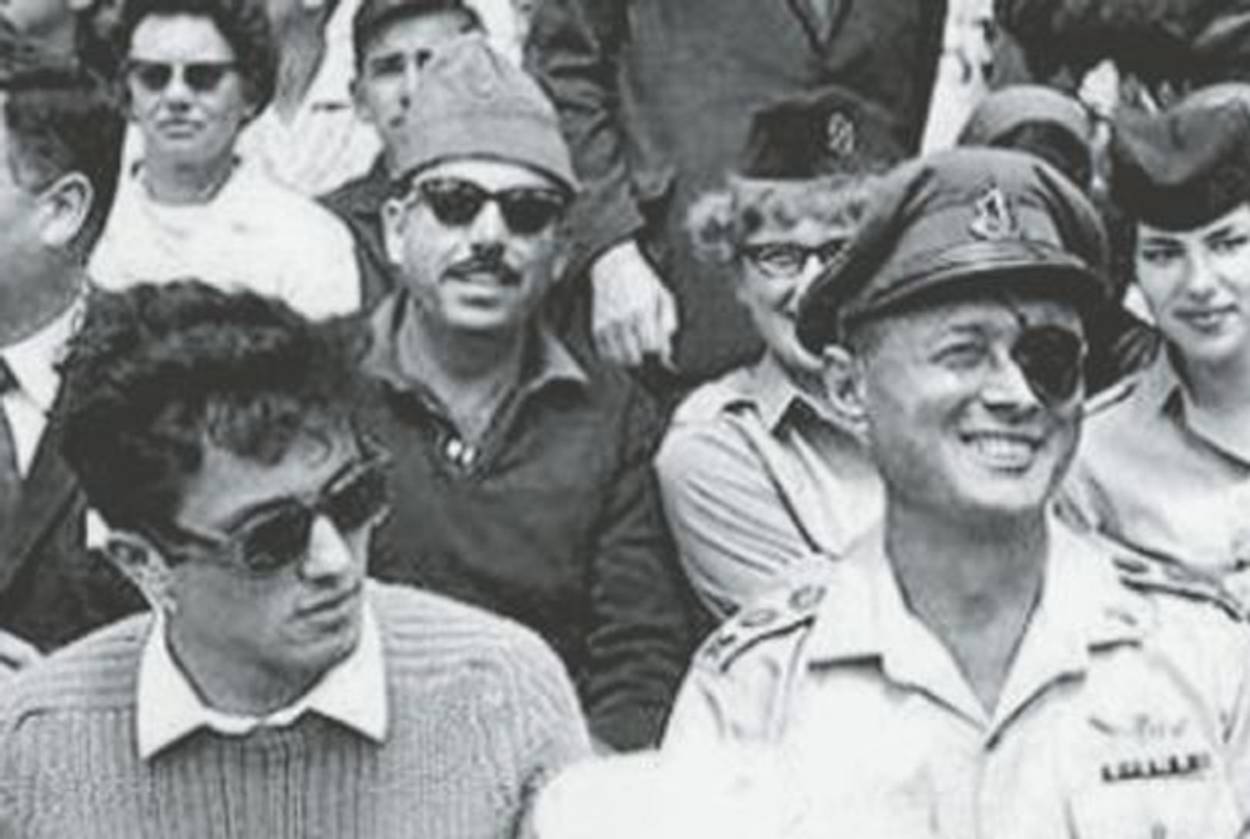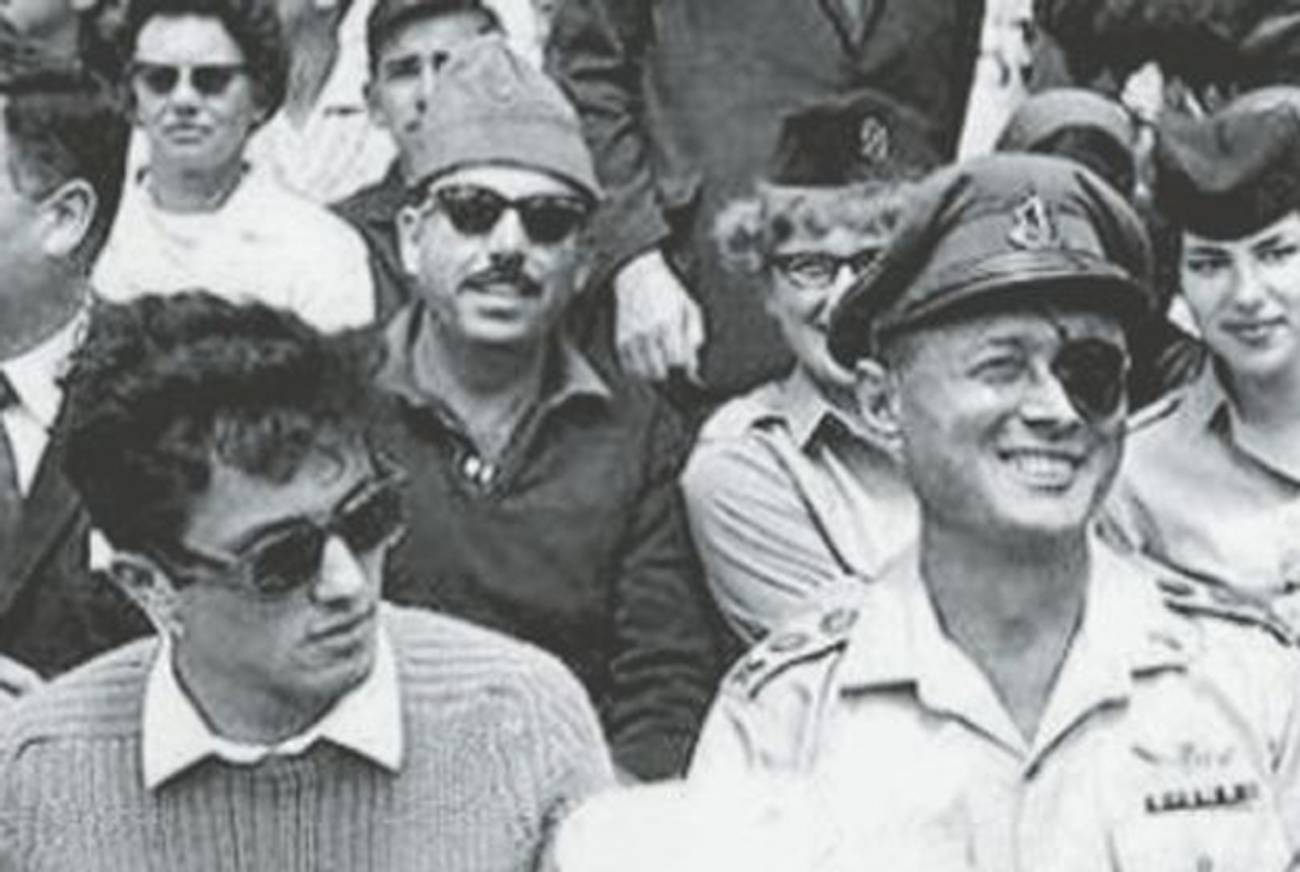Israeli Actor and Director Assi Dayan Dies at 68
The son of Moshe and Ruth Dayan created some of Israel’s most iconic films




Assi Dayan, writer, director, actor, and scion of Israeli aristocracy, died today at his Tel Aviv home at 68. He was responsible for some of Israeli cinema’s greatest popular hits, as well as some of its bleakest cynical moments.
He was born in 1945 in the moshav Nahalal, in the Jizreel Valley, to Moshe Dayan—IDF Chief of Staff, Defense and Foreign Minister, and surely one of this country’s most iconic faces—and Ruth Dayan, a pioneer of the Israeli fashion industry (now 97 and still active, Ruth Dayan survives her son). Even before the Six Day War, of which Moshe Dayan was architect, the younger Dayan was treated as royalty. At 13, as he recounted in the recent autobiographical documentary Life as a Rumor, he was pulled over by a cop that had caught him speeding in his father’s car. Luckily, dad was in the back seat, and the policeman was quick to release them both, with a salute (“No one would dare touch us, a two-man mafia,” Dayan said).
But as the euphoria of 1967 came and went, Assi Dayan’s disillusionment grew. General Dayan might have been a hero, but he was also, unashamedly, a grave robber and philanderer. And he disapproved of his son’s artistic inclinations. Having dabbled in poetry, Assi landed a bit part in a Michael Cacoyannis film and fell love with cinema. “I felt completely natural, perhaps because I had always been used to having cameras around,” he said. A uniquely schizophrenic career was soon to follow. He played Uri, the quintessential tsabar, in a 1967 screen adaptation of Moshe Shamir’s He Walked Through the Fields, and a decade later he was Yoni Netanyahu’s second-in-command in the patriotic Entebbe thriller Operation Thunderbolt. But by that point he had already written and directed Halfon Hill Doesn’t Answer, a satiric romp through the Sinai Desert starring the legendary Gashash comedy trio, that celebrated the camaraderie of service in the IDF reserves while at the same exposing its countless absurdities (a cult classic since its release, the film has also been a staple of Israeli Independence Day television).
In the 1980s and 90s Dayan focused on writing and directing his increasingly personal and despairing works. In 1992’s Life According to Agfa, a long night in a Tel Aviv pub that rapidly descends into violence serves as a microcosm for a polarized Israeli society. His 1997 Mr. Baum, about a man diagnosed with a brain tumor that has left him only 90 minutes to live, has recently been remade as a Robin Williams vehicle, The Angriest Man in Brooklyn, due for release later this month. The 21st century found Dayan yet greater success as a character actor, in films such as Joseph Cedar’s Time of Favor and Campfire. He even played his father in a TV movie about the Yom Kippur War intelligence debacle.
But he was also in a spiral of drug abuse. As Dayan was starring in the television show In Treatment as flawed psychologist Reuben Dagan (Gabriel Byrne played that role in the HBO version), Israeli papers were full of reports of his own mental health turmoil, which left him overweight and sometimes violent. The 2012 documentary Life as a Rumor opened with footage of Dayan directing himself in what was to become his final film, Dr. Pomerantz, a black comedy about a shrink who encourages his patients to jump off his balcony. Having spent a lifetime dissecting his big themes—Israel, family and the human condition—Dayan, in his opening narration, turned a glaring spotlight on himself.
My name is Assi, Assi Dayan. At 65 I’m making another movie. My body is collapsing from all the cigarettes, chemicals and material fatigue. I weigh 130 kilograms. My heart has been through an attack. The assistant directors move me from location to location, and I keep on directing, playing the main role and at night I go through re-write after re-write of my script. It seems to me as if I’ve lived enough for a couple of people. It’s time to summarize, to take stock. So here it is: there are 80 movies I’ve acted in, 16 I’ve written and directed, 9 [Israeli] Oscars, 3 life time achievements, and aside from that thousands of newspaper articles, one novel, three books of poetry, three and a half years in a mental institution, three suicide attempts, two arrests, four weddings, four kids, but first and foremost and before God, one father. With one eye.
Tal Kra-Oz is a writer based in Tel Aviv.